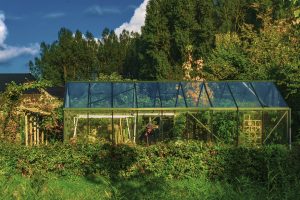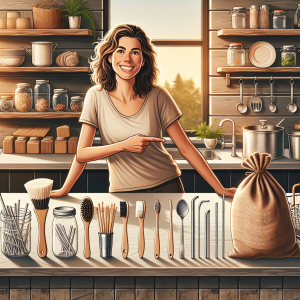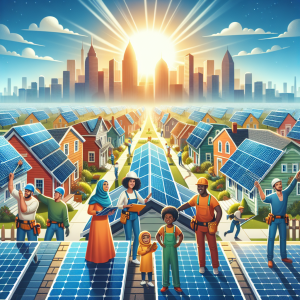The Rise of Sustainable Packaging in Consumer Goods
The rise of sustainable packaging in consumer goods has become a significant trend as businesses and consumers alike become more environmentally conscious. The shift toward eco-friendly packaging solutions is driven by a combination of regulatory pressures, consumer demand, and the intrinsic need for companies to improve their sustainability footprint.
One of the key factors driving this shift is the increasing awareness of the environmental impact of traditional packaging materials, such as plastics. Plastics, while versatile and cost-effective, pose significant environmental challenges due to their non-biodegradable nature. They contribute to the rising levels of waste in landfills and oceans, endangering wildlife and disrupting ecosystems. Consequently, both governments and environmental organizations have been advocating for reduced plastic use and have implemented regulations to curb its proliferation.
Regulations and policies play a crucial role in advancing sustainable packaging initiatives. For instance, the European Union’s Circular Economy Action Plan aims to ensure that by 2030 all packaging in the EU market is reusable or recyclable. Similar efforts are evident in various countries worldwide, where plastic bans, levies, and recycling mandates are being enforced to reduce reliance on single-use plastics and encourage the adoption of sustainable alternatives.
Consumer demand is another powerful driver of sustainable packaging. Modern consumers are more informed and conscientious about the environmental implications of their purchases. They increasingly prefer brands that demonstrate environmental responsibility and offer products with minimal ecological footprints. Studies show that consumers are willing to pay a premium for goods packaged in sustainable materials, such as recycled paper, biodegradable polymers, and compostable substances. This shift in consumer behavior compels companies to innovate and align their packaging strategies with green values to capture market share and maintain brand loyalty.
Brand reputation is closely tied to environmental stewardship, and embracing sustainable packaging is a tangible step businesses can take to bolster their eco-friendly image. Companies across various sectors, from food and beverage to beauty and electronics, are investing in developing sustainable packaging solutions. For instance, multinational corporations like Unilever and Coca-Cola have set ambitious targets to reduce their plastic usage and increase the use of recycled materials in their packaging. Collaborations with NGOs, researchers, and packaging experts further accelerate the development and deployment of innovative eco-friendly materials.
One of the most promising advancements in sustainable packaging is the use of biodegradable materials. Biodegradable plastics, produced from renewable resources such as cornstarch or sugarcane, decompose naturally, reducing the waste burden. Similarly, compostable packaging options, which break down into nutrient-rich compost, provide an environmentally friendly way to manage waste. These alternatives offer viable solutions to the plastic problem by mimicking the functional properties of conventional plastics while minimizing their environmental impact.
Another novel development in sustainable packaging is the application of edible packaging. This concept involves packaging that can be safely consumed along with the product it encases, effectively eliminating waste entirely. Edible packaging is particularly gaining traction in the food industry, with companies exploring the use of natural ingredients like seaweed, rice paper, and milk proteins to create packaging that is both functional and nutritious.
The role of technology in enhancing sustainable packaging cannot be overstated. Advanced manufacturing techniques, such as 3D printing, enable the production of customized packaging with minimal waste. Smart packaging solutions integrate technology to improve recyclability and extend product life, simultaneously addressing sustainability and functionality. Innovations in RFID tagging, QR codes, and blockchain provide transparency and traceability, affirming sustainable practices across supply chains.
Life cycle assessments (LCAs) are essential tools that help companies understand the environmental impact of their packaging throughout its life cycle, from raw material extraction to disposal. By assessing the carbon footprint, energy use, and waste generation associated with different packaging options, businesses can make informed decisions to optimize their sustainability strategies.
Sustainability initiatives often lead to economic benefits as well. Eco-friendly packaging solutions can reduce material costs, optimize supply chain operations, and enhance brand differentiation. In a competitive market, these advantages can translate into increased profitability and market share. Additionally, sustainable packaging can contribute to improved customer satisfaction by aligning with consumer values and expectations.
While the momentum for sustainable packaging is increasing, challenges remain. The complexity of recycling systems, high costs of innovative materials, and shifting regulatory landscapes present obstacles that companies must navigate. However, continued collaboration among stakeholders, investment in research and development, and consumer education are crucial to overcoming these barriers.
In conclusion, the rise of sustainable packaging in consumer goods reflects a broader shift towards environmentally responsible consumption. By adopting and promoting eco-friendly packaging practices, companies can significantly reduce their environmental impact while meeting the burgeoning demand for sustainable products. The journey toward sustainable packaging requires ongoing commitment, innovation, and cooperation, ultimately paving the way for a more sustainable and circular economy.




